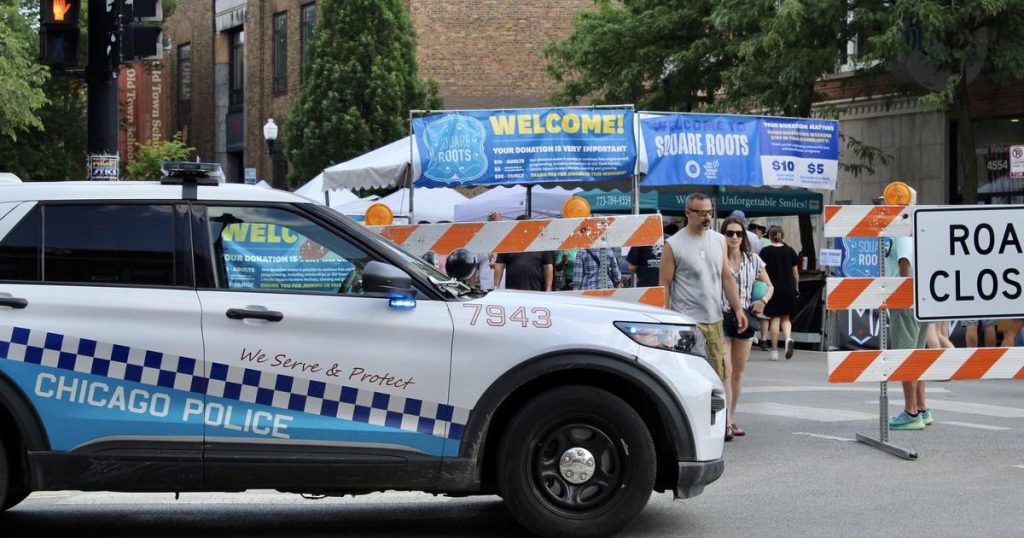Chicago street festivals have been underestimating crowd sizes by tens of thousands, resulting in unpaid police overtime costs that could reach into the millions. Records show that nearly 2,800 Chicago police officers worked a total of 27,000 hours of overtime at street festivals between 2021 and 2023, with the city covering the cost instead of event organizers as required by law. This has raised concerns about officer burnout and strained police resources, especially as the police department is facing a decline in staffing and budgetary challenges.
City officials, including alderpeople, have demanded accountability from the Department of Cultural Affairs and Special Events regarding the unpaid reimbursements for police resources at street festivals. Various aldermen have raised questions about the lack of equity in charging event organizers for police resources, especially in the context of a billion-dollar budget deficit and potential property tax increases for constituents. Despite the economic benefits street festivals bring to neighborhoods, concerns about fairness and financial obligations remain unresolved.
Event organizers are required to pay fees for permits, street closures, and other services related to hosting street festivals in Chicago. However, the cost of police overtime has often been overlooked, with some producers arguing that the expenses associated with hiring police officers could be prohibitive and could potentially lead to the end of many festivals. While some large events like Lollapalooza and the Chicago Marathon reimburse the city for police resources, smaller neighborhood festivals have not been meeting this requirement, leading to financial strain on the city’s resources.
The issue of unpaid police resources extends beyond street festivals to large-scale events like the Pride Parade, where significant numbers of officers are deployed on overtime. The cost of managing these events falls on the city, raising concerns about the impact on police manpower, officer burnout, and the diversion of resources from neighborhood policing. With a looming budget gap, the hidden costs of hosting these events are becoming more apparent, leading alderpeople to call for a reevaluation of the current system and a closing of the loophole that allows some event producers to avoid paying for police resources.
While street festivals can provide economic benefits to neighborhoods and raise awareness for local groups, the lack of accountability in paying for essential services like police resources is becoming a growing concern in Chicago. Requiring event producers to cover the costs of police overtime could help ensure a fair distribution of expenses and alleviate the strain on city resources. Aldermen are advocating for a more equitable system that accurately accounts for the true costs of hosting events, especially those that require a significant amount of police presence.
As discussions continue around the issue of unpaid police resources at street festivals and large-scale events, there is a growing consensus among lawmakers and city officials that changes need to be made to ensure fairness and financial responsibility. By addressing the oversight in invoicing and reimbursement processes, Chicago can better allocate resources, avoid budget shortfalls, and prevent officer burnout. The collaboration between Block Club Chicago and CBS News has shed light on this critical issue and sparked a much-needed conversation about the future of event planning and policing in the city.


